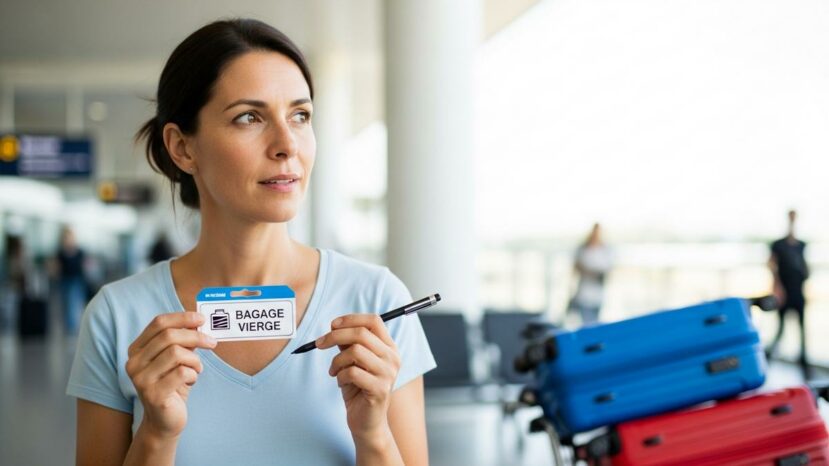Airline luggage tag: don’t write your address to avoid burglaries, advises a flight attendant

Before a trip, take care of your suitcase and its etiquette. According to a flight attendant’s testimonial relayed by Cosmopolitan, there is one security detail that deserves your attention. This warning can save you a lot of trouble both at the airport and at home.
The advice of a flight attendant
First of all, don’t put your full address on the luggage tag. This very personal information can indicate that your home is empty during the journey. Ill-intentioned people can read it in queues or near carpets. It’s best to limit what’s visible on the outside.
Next, reduce the amount of clues about your private life. For example, avoid posting dates of stay, itineraries or the name of a hotel. These details add context to strangers, which increases the risk. A suitcase can go anywhere beforeboarding.
In practice, you should use quick and discreet means of contact. So include a telephone number and an e-mail address. You can add your cityor a zip code, without giving the street. Keep your full address inside the suitcase, in case your luggage gets lost during the journey.
“Better a discreet means of contact than a plain address on the suitcase.”
What do you actually put on the label?
Start with your first initial and last name, no more. Also, a number that can be reached at all times is the most useful information. Add a simple email address for emergencies. This trio is all you need to find your luggage without exposing your entire travel life.
Choose a covered label with a flap to hide the details. On the other hand, slip on a second, internal label with your full details. This way, an agent can read it only if it’s opened. This double layer is reassuring, especially when traveling to a crowded place.
- Never display your full personal address.
- Give preference to legible telephone numbers and emails.
- Use an external label with flap.
- Put a contact plug inside.
- Remove old labels and barcodes.
Real risks and misconceptions
The threat is not fiction, even if it remains rare. Yet public areas of airports make reading a label effortless. What’s more, an unoccupied home attracts unwanted attention. So it’s best to reduce exposure while keeping a useful landmark for the journey.
Many are particularly concerned about lost luggage. However, what agents really need is an effective means of contact. In the vast majority of cases, a telephone number and an e-mail address will suffice. The full address comes in handy later, if necessary.
Families and solo travelers alike benefit from standardizing these practices. This way, the same rules apply on all routes. A discreet marking on the handle also helps to identify your suitcase. This sobriety protects your privacy without complicating the journey.
Other tips for trouble-free journeys
Remember to remove any old barcodes left on the shell. Otherwise, your luggage may be misaligned. Also, photograph your bag before you drop it off. This visual helps the baggage department, especially on connecting flights.
Keep the deposit receipt in a safe pocket. This way, you can quickly prove your check-in in the event of a problem. You can also personalize your luggage with a discreet sign. The aim is to identify it quickly, without revealing any sensitive information.
Pre-airport checklist
Check the contents of the label in three simple steps. First, remove the full address and home details. Next, leave only the abbreviated name, telephone number, e-mail address and, if necessary, the city. Finally, insert a more detailed internal card, useful during the trip.
When dropping off, check that the company label is properly attached. Also, confirm that the tag mentions the right destination. Keep a copy of the receipt in your wallet. A little tidiness saves a lot of stress at the counter.
On arrival, check the condition of the suitcase as soon as you step on the carpet. Then quickly report any anomaly to baggage services. In short, the faster you do it, the better it goes. You’ll be able to leave with a lighter mind for your next trip.





No comments
Post a comment
Always participate in accordance with the law and with respect for others.